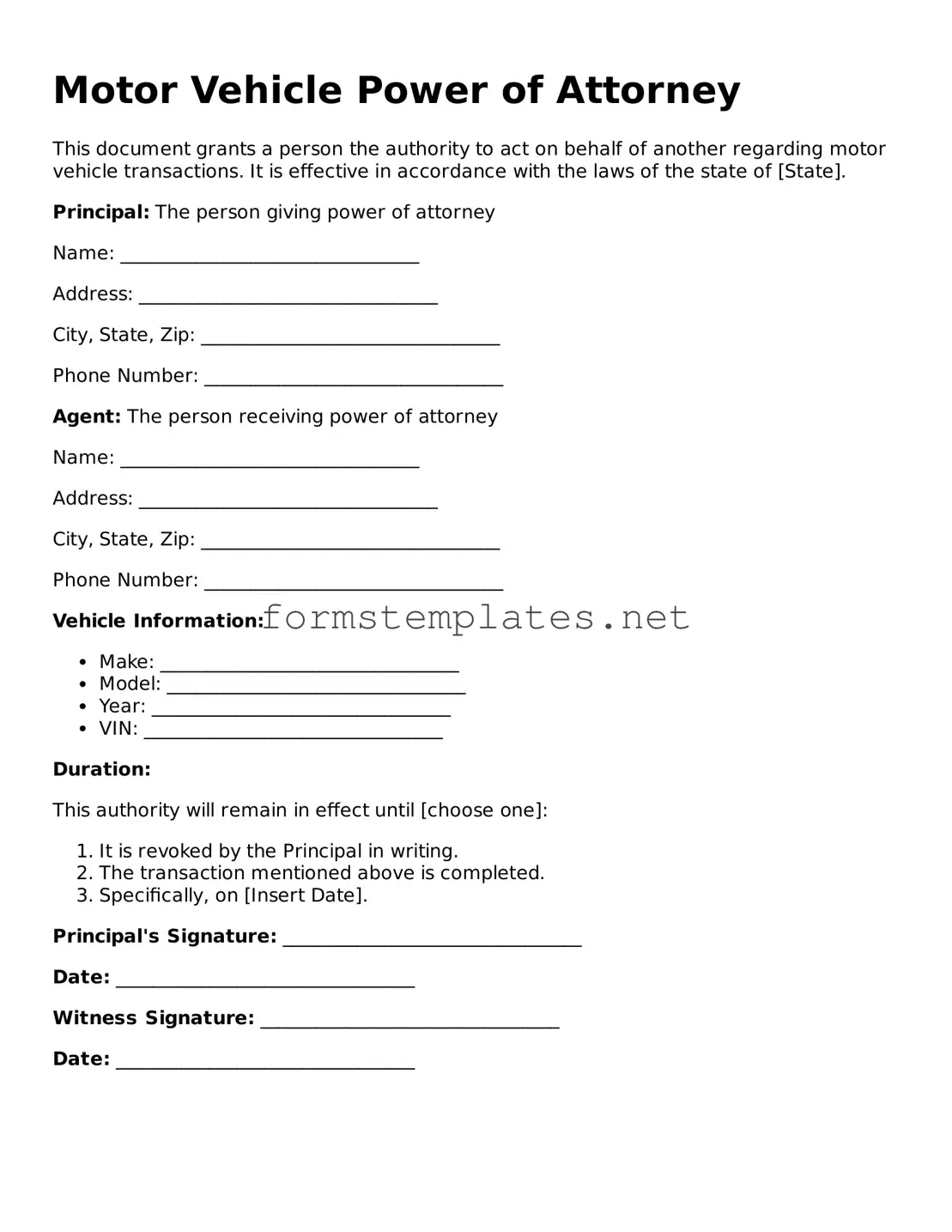Attorney-Verified Motor Vehicle Power of Attorney Form
The Motor Vehicle Power of Attorney form is a legal document that allows an individual to appoint another person to handle specific tasks related to their vehicle on their behalf. This can include signing documents, transferring titles, and managing registrations. Understanding this form is essential for anyone who needs to delegate vehicle-related responsibilities effectively.
Open Editor Now

Attorney-Verified Motor Vehicle Power of Attorney Form
Open Editor Now

Open Editor Now
or
⇓ PDF Form
Your form still needs attention
Finalize Motor Vehicle Power of Attorney online — simple edits, saving, and download.